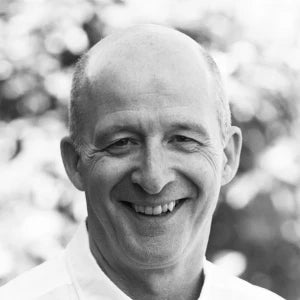Our Thoughts on World Cancer Day: A Call to Action
World Cancer Day, led by the Union for International Cancer Control (UICC), unites people globally to raise awareness and take action against cancer. Every year on February 4th, this day reminds us of the urgent need to reduce the burden of cancer and save millions of lives. But World Cancer Day is more than just an annual event. It’s a powerful movement that fuels change, encourages conversations, and drives action long after the day itself.
Why World Cancer Day Matters
World Cancer Day isn’t just another date on the calendar. It’s a rallying call that inspires people worldwide to get involved and make a difference. Each year, its campaigns maximise engagement and amplify voices, ensuring the message of cancer prevention and care reaches as many people as possible. For instance, the 2022-2024 theme, “Close the Care Gap,” highlighted the inequalities in cancer care. It underscored the need for better access to quality care, no matter where you live or your socioeconomic status. The upcoming 2025-2027 campaign, “United by Unique,” will centre on personalised care, emphasising that every individual deserves to be at the heart of their cancer journey.
Cancer continues to be a leading cause of death globally. The UICC estimates nearly 9.6 million deaths annually. Without intervention, this figure could rise to 13.2 million by 2030. Many of these deaths are preventable through early detection and improved access to care.
Bridging the Gap in Cancer Care
Half the world’s population lacks access to essential health services. When it comes to cancer, this disparity is even more pronounced. While we live in an age of incredible medical advancements, millions still face barriers to receiving even basic care. These challenges aren’t just medical—they’re social. Factors like income, geographic location, education, and systemic discrimination based on age, race, gender, or disability create significant obstacles. Those in disadvantaged groups are often more exposed to risk factors such as poor diet, tobacco use, alcohol, and environmental hazards, yet have the least access to care.
While it’s disheartening that some regions have better cancer care than others, we can all contribute by raising awareness about early detection. In the UK, for example, long NHS waiting lists mean many patients face delays in diagnosis and treatment. This highlights the need for alternatives and faster screening options.
Act Now: Save Lives Through Early Detection
The message from World Cancer Day campaigns is clear: early detection saves lives. Catching cancer in its early stages significantly improves treatment success rates.
At Check4Cancer, we’re committed to making early detection accessible and straightforward. Our screens help detect six of the most common cancers—breast, prostate, bowel, skin, cervical, and lung—before symptoms appear. With our award-winning screening solutions, we aim to improve survival rates and give people the peace of mind they deserve. Early detection isn’t just about better outcomes; it’s about empowering individuals to take control of their health.

Professor Gordon Wishart
Chief Medical Officer
Professor Gordon Wishart is the founder, Chief Medical Officer and CEO of Check4Cancer, a leading early cancer detection and cancer prevention company. In 2016 Check4Cancer launched rapid access, streamlined and audited diagnostic pathways for breast and skin cancer to the insured and self-pay markets, leading to the award of “Diagnostic Provider of the Year” at the annual Health Investor Awards in 2018. In late 2017, Check4Cancer launched the first worldwide breast cancer risk test (MyBreastRisk) to combine genetic, family history and lifestyle risk factors to underpin a risk-stratified breast screening programme. As the former Director of the Cambridge Breast Unit from 2005-2010, and current Professor of Cancer Surgery at Anglia Ruskin School of Medicine since 2008, he has a strong track record in clinical research and modernisation of cancer diagnosis and treatment, with more than 100 peer-reviewed papers in scientific journals. In 2010 he led a team of clinicians and scientists that developed the PREDICT breast cancer treatment and survival model, now used worldwide.
Find out moreKnowledge and support
Go to all articles
Check4Cancer & Early Labs launch a partnership to offer urine-based early cancer detection tests
“Our partnership with EARLY Labs provides an opportunity to develop an early cancer detection test for 2-3 common cancers, based...
Read more
Leading the Way in Cancer Risk Stratification and Screening
From advanced screening techniques to innovative risk stratification tools, here's how we are actively shaping the future of cancer care.
Read more
Professor Andrew Beggs Honoured with the Josiah Mason Award for Academic Achievement
Check4Cancer is proud to congratulate Professor Andrew Beggs, Clinical Advisor to Check4Cancer, on receiving the prestigious Josiah Mason Award for...
Read more